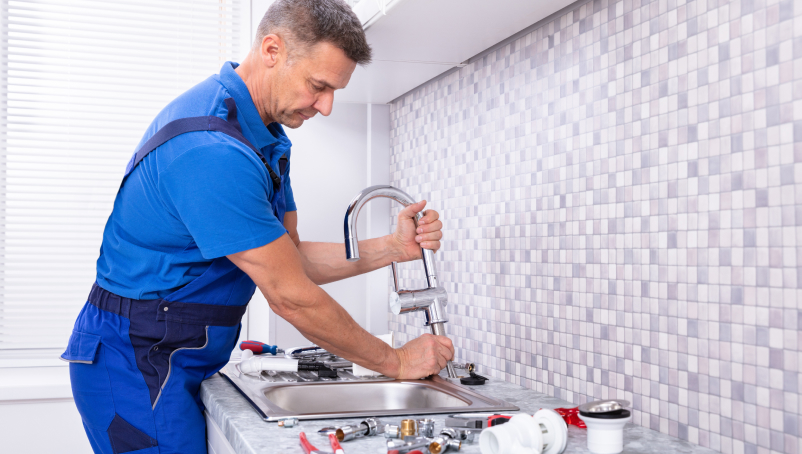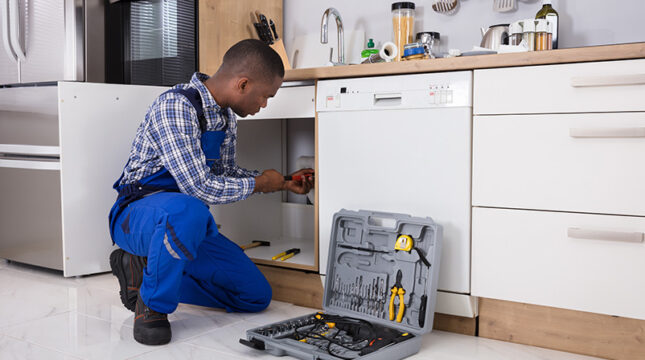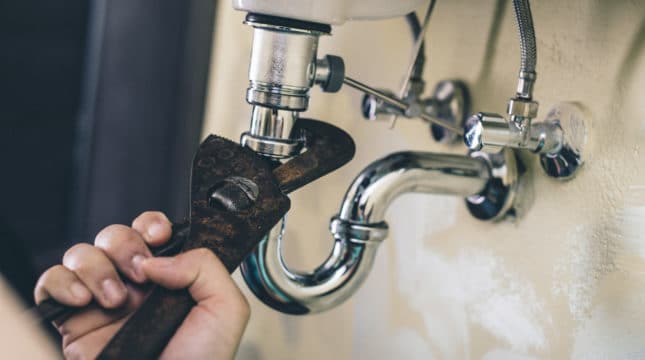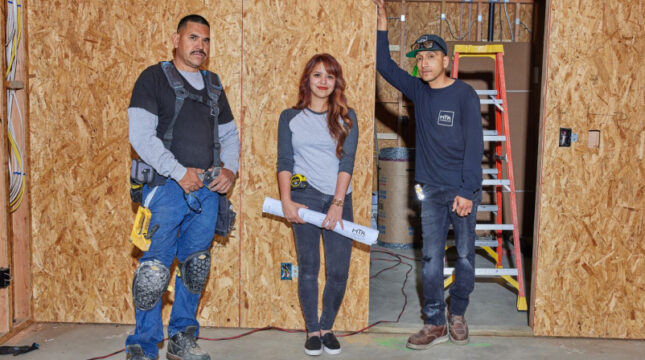Are Virginia plumbing licenses for contractors required?
Yes. If your plumbing business engages in the “construction, removal, repair, or improvement of facilities on property owned by others,” you must obtain state licensing from the Department of Professional and Occupational Regulation (DPOR). Specifically, the Board for Contractors regulates and licenses plumbers in Virginia.
The DPOR offers three licensing classes: A, B and C. Virginia plumbing licensing classes depend on the value of the projects you want to work on as a plumbing contractor.
- Class A: For single projects valued at $120,000 or more and an annual total value of all projects of $750,000 or more.
- Class B: For single projects priced between $10,000 and $120,000, with an annual total value for all projects of $150,000 to $750,000.
- Class C: For single projects valued between $1,000 and $10,000 and an annual total value for all projects less than $150,000.
Insurance requirements for a Virginia plumbers license
To help safeguard your small business, consider investing in Virginia business insurance. Here are some key types of plumber insurance to think about:
Workers’ Compensation insurance
Virginia state law requires you to carry workers’ compensation insurance if you’re a business owner with more than two employees — either full-time, part-time, subcontractor, seasonal, temporary, minor, trainee, immigrant or working family member.
This coverage can assist with lost wages, medical expenses, and other costs if you or one of your employees suffers an injury on the job.
Learn more about workers’ compensation for contractors.
General Liability insurance
General liability insurance helps cover medical expenses if a customer or non-employee is injured due to your work. It also helps with the costs for repairs or replacements if you accidentally damage someone else’s property.
Learn more about general liability insurance for contractors.
Commercial Property insurance
Commercial property insurance helps protect your office or shop, including your tools and equipment, from covered events such as fire, theft or wind storms. This coverage can include your building structure, products and inventory, furniture and the equipment that you use for work.
Business Owner’s Policy
A business owner’s policy, or BOP insurance, provides broad coverage of general liability and commercial property policies combined in a single, cost-efficient bundle.
It can help cover damage that you or your employees may accidentally cause to another person’s property and help protect your business structure in the event of a fire or other covered event.
Tools and Equipment insurance
Tools and equipment insurance helps protect your gear and can pay for repairs or replacements if it’s stolen or damaged while on the job. At NEXT, it’s an add-on coverage for general liability.
Commercial Auto insurance
As a plumber, you’re always driving to different job sites. Commercial auto insurance can help cover expenses related to accidents, including property damage and medical bills. If you have personal auto insurance, that’s great — however, check with your provider, as they may not cover all business-related activities.
In Virginia, the minimum coverage limits are:
- Bodily injury: $30,000 per person and $60,000 per accident (After January 1, 2025: $50,000 per person and $100,000 per accident.)
- Property damage: $20,000 per accident (After January 1, 2025: $25,000 per accident.)
How to get a plumbing license in Virginia
You’ll have to get a tradesman license to be a plumber in Virginia. Aspiring plumbers usually start as apprentices or entry-level workers and progress toward obtaining a journeyman’s license. You must be at least 18 years old and hold a high school diploma or GED.
(If you want to know how to get your plumbing contractor license, skip to step #4.)
1. Get a journeyman plumber license
The journeyman plumbing license is Virginia’s initial level of licensure. It allows individuals to work under a master plumber on projects under less than $1,000. To qualify, applicants must accumulate specific practical experience and classroom instruction, pass a state-mandated exam and meet specific education requirements.
Pathways for Virginia journeyman include:
- Four years of practical experience in the trade and 240 hours of formal vocational training in the trade.
- An associate degree or a certificate of completion from a two-year program in a plumbing-related field from an accredited community college or technical school and two years of practical trade experience.
- Complete an approved apprenticeship program.
- A bachelor’s degree in an engineering curriculum related to plumbing and one year of practical trade experience.
2. Get a master plumber license
A master license allows you to plan, supervise, and install plumbing systems for projects under $1,000 in Virginia. To qualify, you must have either:
- At least one year of licensed journeyman experience; or
- 10 years of verified trade experience.
You can sit for the exam by providing evidence of this experience.
3. Take the licensing exam
The Virginia Board of Contractors requires aspiring journeyman, master or contractor candidates to apply for permission to take licensing exams. However, the tradesman license is for individuals and not business entities. (Contractor licenses are for businesses.)
The Board evaluates eligibility based on practical experience and educational background. You can apply through their online form or by mail.
PSI Examination Services administer tests in Virginia. Their Candidate Information Bulletin outlines the examination and process.
After completing the computerized test, the Board will notify the applicant and send the license.
To obtain your plumbing contractor license and run your own business, continue with these steps:
4. Establish your business entity
Before you can apply for a contractor license in Virginia, you need to set up a business entity since licenses are granted only to businesses, not individuals. You have several options: sole proprietorships, limited liability companies (LLCs), partnerships, or corporations.
Register your chosen business name with the Virginia State Corporation Commission.
5. Complete the pre-license education course
All prospective plumbing contractor license holders must take an eight-hour pre-license education course approved by the Board of Contractors. This course provides valuable insights into business ownership, covering crucial topics such as Virginia’s regulations, requirements and relevant statutes.
6. Pass the required plumbing exams
To get a Class A or B plumbing contractor license, you must have a Designated Employee who has completed exam requirements.
The exams are divided into different subject areas. The Virginia section tests the candidate’s knowledge of Virginia’s laws and regulations, while the general section tests the candidate’s general administrative and business knowledge.
- Class A: The licensure examination is a three-part exam, including the Virginia and General sections and an Advanced Section that tests the candidate’s general administrative and business knowledge necessary to engage in Class A contracting.
- Class B: A two-part exam comprised of the Virginia and General sections.
No additional testing is required for Class C licenses.
7. Submit your application
When filling out your license application, you’ll need to identify the key management personnel for your business, including owners, partners and officers. Additionally, you’ll need to appoint a Qualified Individual with the necessary plumbing work experience.
Virginia plumbing license requirements for contractors
You must fulfill specific requirements to apply for a Virginia plumber license:
- You must be at least 18 years old.
- You must complete the educational requirements, including pre-licensing education.
- Complete all required work experience requirements.
- Have a physical home address (P.O. Box is not accepted).
- Pass mandated exams.
- Have a master plumbing license.
- Pay the applicable exam and license fees.
Additionally, the DPOR has specific work experience and financial criteria for each license class:
- Class A: Requires five years of hands-on experience and a minimum net worth of $45,000.
- Class B: Requires three years of practical experience and a net worth of at least $15,000.
- Class C: Requires two years of practical experience, with no financial requirement.
When submitting your application, be ready to provide documentation verifying your ability to meet the work experience and financial requirements for your chosen license class. This demonstrates your vocational training and your financial capacity to support your business.
Bond requirements for a Virginia plumbing licenses
The Board of Contractors doesn’t require a bond when applying for a contractor license, however, if an applicant is unable to offer acceptable proof of the required net worth, they may instead submit documentation of obtaining a $50,000 surety bond.
This does not apply to Class C contractor license applicants, who are not required to meet any minimum net worth criteria.
Virginia plumbing license renewals
Plumbing contractors’ licenses are good for two years. To keep your license active, you must submit a renewal form and pay the renewal fee before expiration.
Before applying for individual license renewal or reinstatement, plumbing contractors must complete three hours of continuing education.
Virginia plumbing license reciprocity
Virginia has a reciprocity agreement with the Washington Suburban Sanitary Commission (WSSC), which serves Montgomery and Prince George’s counties in Maryland. Journeymen, master plumbers and gas fitters must still apply through the tradesperson application.





